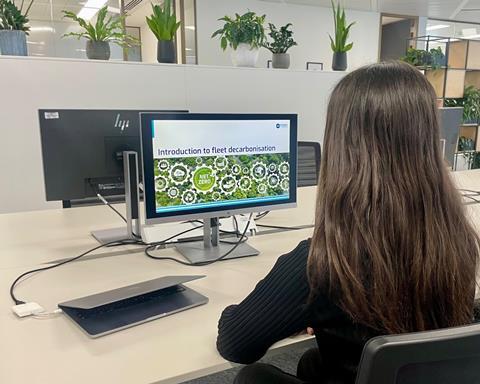FORS has introduced a new module, ‘Introduction to Decarbonisation,’ as part of its FORS Practitioner training programme. This course aims to provide fleet managers with essential knowledge about carbon emissions, regulatory frameworks, and decarbonisation terminology. It focuses on helping fleet operators adopt sustainable practices by understanding the principles needed to reduce environmental impact and contribute to collective sustainability goals.

Participants completing the module will learn about the importance of decarbonising fleets, the regulatory landscape, and the key terms associated with decarbonisation. They will also explore the three Rs of sustainability – record, report, reduce – and the various decarbonisation options available to fleet operators.
The launch of this module aligns with the recent release of Version 7 of the FORS Standard, which includes requirements for professional development and decarbonisation strategies. To meet these standards, FORS Accredited Operators must have a designated Fuel & Emissions Champion attend the module before applying for FORS Silver accreditation from January 2, 2025.
The training is open to managers of fleets of all sizes, regardless of FORS accreditation. The initial courses were delivered remotely on June 25 and quickly sold out, with additional sessions scheduled for July 15. FORS Accredited Operators can benefit from half-price entry to the session, which also serves as an optional module for those pursuing FORS Practitioner and Advanced FORS Practitioner qualifications.
“With the launch of our ‘Introduction to Decarbonisation’ module, we’re continuing to set the standard for excellence in fleet management education,” explained Geraint Davies, FORS Concession Director. ”The time to decarbonise is now and we’re proud that FORS is leading the way on the transport sector’s road to Net Zero.”
Fleet managers can access the training by heading to the FORS training site.


















